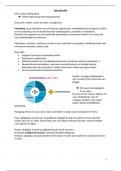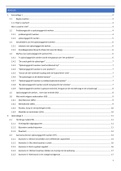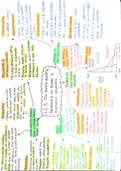College aantekeningen
Class notes - Work Psychology
- Instelling
- Tilburg University (UVT)
- class notes from Work Psychology course - all lectures included (except for guest lecture) - in order to complete the exam successfully, besides reading these class notes, I recommend also reading the book
[Meer zien]








